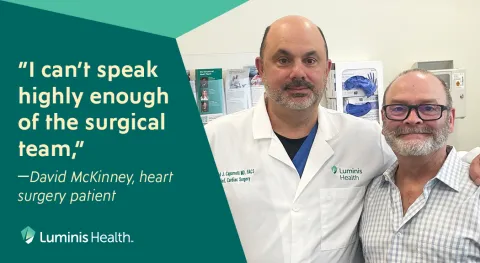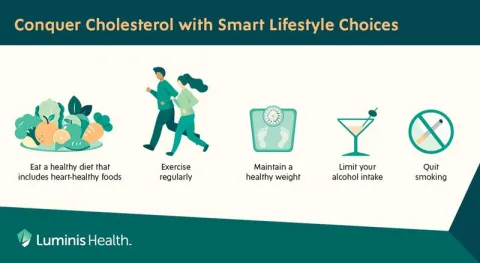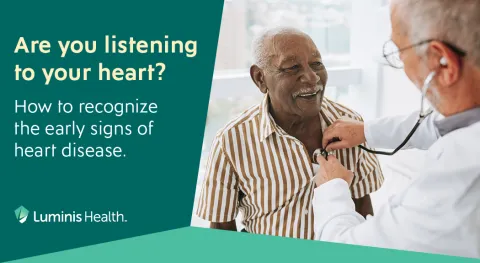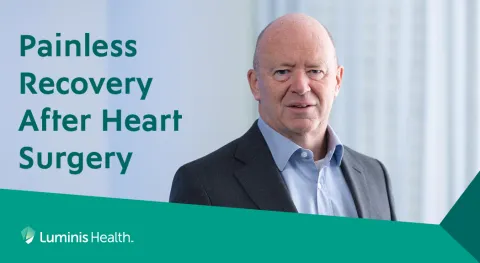Do you ever feel that your heartbeat is irregular, or slower or faster than normal? This describes an arrhythmia. Sean C. Beinart, MD, cardiac electrophysiologist at Luminis Health Anne Arundel Medical Center (LHAAMC), answers a few common questions about this condition.
What is an irregular heartbeat and how will I know if I have one?
We refer to irregular heartbeats as arrhythmias or abnormal heart rhythms. They range from very benign single premature beats to more dangerous arrhythmias that can cause sudden cardiac death. Some arrhythmias are becoming more common such as atrial fibrillation. Atrial fibrillation is not life threatening, but it can increase your risk for stroke. It can also cause a wide range of symptoms including palpitations (a feeling of butterflies in the chest), shortness of breath, chest pain, or severe fatigue.
What treatments are available to me?
The wonderful thing about cardiology and the field of heart rhythm disorders is that we typically have many treatments available to patients. They include a variety of lifestyle modifications, medical treatments, or cardiac ablation. Cardiac ablation is a procedure where a specialist carefully places spaghetti-sized wires in the heart via the veins in the legs to identify and then eliminate the abnormal electrical signals.
Will I need a pacemaker?
Pacemakers are only necessary if someone has a very slow heart rate. This can sometimes occur in a patient who occasionally has a fast heart rate. Most treatments, however, do not require a pacemaker.
How long does treatment take?
Your provider will tailor treatments to your specific arrhythmia and associated symptom burden. I develop a strategy that involves a shared decision. I take into account the patient’s other medical problems. This ensures optimal health and quality of life.
How can I make an appointment with an electrophysiologist?
If you have symptoms such as palpitations, dizziness or near fainting, chest pain or shortness of breath, you could have an arrhythmia. Making an appointment is as simple as calling our cardiology office and asking for an electrophysiologist (heart rhythm specialist) or Dr. Beinart.
Authors
Sean C. Beinart, MD, is a cardiac electrophysiologist at LHAAMC. To make an appointment with him, please call
443-481-6700.




